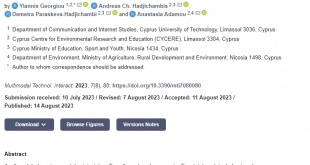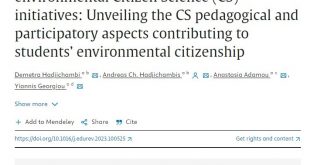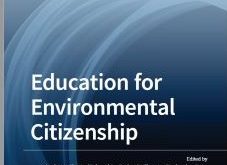Hadjichambis, A. Ch., Georgiou, Y., Paraskeva-Hadjichambi, D. P., Ioannou, H., & Manoli, C. C. (2015): Integrating sustainable consumption into environmental education: a case study on environmental representations, decision making and intention to act. International Journal of Environmental and Science Education, 10(1), 67-86. doi: 10.12973/ijese.2015.231a
Abstract
During the last decades, current consumption patterns have been recurrently blamed for rendering both the environment and our lifestyles unsustainable. Young children are considered a critical group in the effort to make a shift towards sustainable consumption (environmentally friendly consumption). However, young people should be able to consider sustainable consumption as a potential venue, among their options. The present study investigates the effectiveness of an environmental education program aiming to familiarize children aged 8-12 with the notion of sustainable consumption by focusing on children’s environmental representations and their intentions to act (decision-making). Findings revealed that the program employed influenced children’s environmental representations into becoming more sustainable ones. In addition, the environmental program provided children with more environmental criteria, allowing children to report their intentions to act as sustainable consumers. Relating children’s environmental representations to their decision-making criteria, findings indicated an emerging relationship between children’s environmental representations, and their intentions to act, as reflected through the decision-making process.
Keywords: Sustainable consumption, environmental representations, decision-making, environmental education program
Please find attached here the related article
 Κυπριακό Κέντρο Περιβαλλοντικής Έρευνας & Εκπαίδευσης – Κυκπεε
Κυπριακό Κέντρο Περιβαλλοντικής Έρευνας & Εκπαίδευσης – Κυκπεε







